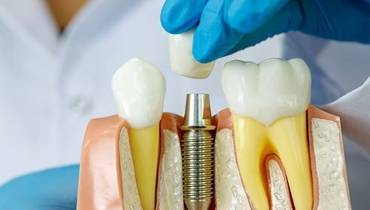5 Mental Hacks to Get Back to Being Happy (Backed by Science)
![Feature Image - [node:title]](/sites/default/files/styles/wide/public/girl-happy-640.jpg?itok=Qen5H8Am)
Far too many people feel unhappy and unfulfilled these days. And our busy lifestyles doesn’t help either.
According to a study on “Social Isolation in America, there is an increase in helplessness, hopelessness, passivity, boredom, fear, isolation (writers and solopreneurs, take note of this one) and dehumanization.”
In other words, the rat race is killing us. We are too busy, unfocused, stressed, irritable and highly susceptibility to severe mental illness.
In 2011, a U.S. Centers for Disease Control and Prevention report revealed that anti-depressant usage in America has increased 400% since 1994.
Even in our personal relationships, not many people in the world today can honestly say they have a proper relationship. Six out of 10 couples report being 'unhappy in their relationship.'
The situation is so bad that neuroscientists have taken an interest in understanding what brings an upward spiral of happiness and well-being.
Not everyone is born with a sunny disposition, but brain scientists say we can all learn how to bring more meaning, satisfaction and happiness into our lives.
Here are some ways neuroscientists say you can get back to being genuinely happy:
1. Practice gratitude for life's “little” gifts.
Too often we don’t stop to appreciate the little blessing in our lives—family, a job you love, being alive, and so on.
According to UCLA neuroscience researcher Alex Korb Ph.D., in his eye-opening book The Upward Spiral: Using Neuroscience to Reverse the Course of Depression, One Small Change at a Time, “The benefits of gratitude start with the dopamine system because feeling grateful activates the brain stem region that produces dopamine." Dopamine is one of four primary chemicals (Dopamine, Oxytocin, Serotonin and Endorphins) in the brain that effect happiness.
Of course, sometimes life lands a pretty mean punch and you might feel like there’s nothing to be grateful for. It doesn’t matter, though. You don’t have to find anything to be grateful for. It’s the searching that counts. Korb explains:
“It’s not finding gratitude that matters most; it’s remembering to look in the first place. Remembering to be grateful is a form of emotional intelligence. One study found that it actually affected neuron density in both the ventromedial and lateral prefrontal cortex. These density changes suggest that as emotional intelligence increases, the neurons in these areas become more efficient. With higher emotional intelligence, it simply takes less effort to be grateful.”
So express gratitude to people more often, and appreciate life’s “little” gifts every day. It’s not big things like a fancy car or new house that impact our happiness the most, rather it’s little things like the smell of a flower or laugh of a child that can give the biggest happiness boost.
2. Label negative emotions in a word or two to dis-empower them.
Lifting your mood and boosting happiness can be as simple as labeling a troubling emotion. Korb explains in his book:
“…in one fMRI study, appropriately titled ‘Putting Feelings into Words’ participants viewed pictures of people with emotional facial expressions. Predictably, each participant’s amygdala activated to the emotions in the picture. But when they were asked to name the emotion, the ventrolateral prefontal cortex activated and reduced the emotional anygdala reactivity. In other words, consciously recognizing the emotions reduced their impact.”
Kevin Ochsner, psychology professor at Columbia University whose research interests include the neural processes involved in emotions, agrees. He says trying to suppress a negative emotion doesn’t work and can backfire on you. You might look fine outwardly, but inwardly your limbic system is just as aroused as without suppression, and in some cases, even more aroused.
So if you feel awful, give that awfulness a name. Describe that emotion. Nervous? Frustrated? Sad? Angry? Maybe you’re just “Bored.” Label your current emotional state in just a word or two and see the emotion’s impact reduce just like that.
3. Make more bold decisions—and read for pleasure.
Don’t shun decision making. When you make decisions, your brain feels in control. It feels at rest. And feeling in control and at rest reduces stress and improves mood. What’s more, brain studies show that making decisions boosts pleasure feelings. When you make a decision on a goal and then achieve it, you feel better than when good things just happen by chance.
For example, if you just read because you feel you have to or you should, well, it’s not really a voluntary decision. Your brain doesn’t get the pleasure boost and the act feels like a chore. However, if you actively decide to read widely for pleasure every day, you not only boost educational outcomes, but also activate rewarding dopamine activity in the brain. You enjoy the activity more.
So read for pleasure more often and make bold decisions in your life. You’ll be happier. You don’t even have to make the 100% right decision. Trying to be perfect overwhelms the brain and makes you feel out of control. Just make a “good enough” decision, says Korb. “…recognizing that good enough is good enough activates more dorsolateral prefrontal areas, which helps you feel more in control…,” he says.
4. Touch people and be more friendly.
Reach out and have hearty conversations with friends and family; laugh and have fun with colleagues; enjoy a sociable chat with casual acquaintances and even strangers. The quality of our relationships plays a big role in our brain’s feelings of happiness. Moreover, physically touch people when interacting with them. Neuroscientists say it’ll boost your happiness.
Korb explains:
“One of the primary ways to release oxytocin (bonding hormone) is through touching. Obviously, it’s not always appropriate to touch most people, but small touches like handshakes and pats on the back are usually okay. For people you’re close with, make more of an effort to touch more often.”
Another great way to be friendly and enjoy sociable touch is to give free hugs. “A hug, “especially a long one,” writes Korb, “releases a neurotransmitter and hormone oxytocin, which reduces the reactivity of the amygdale." The amygdals is the integrative center in the brain that plays a key role in processing our emotions, emotional behavior and motivation.
Other studies support this assertion and show getting five hugs a day for four weeks will increase your feelings of happiness big time.
5. Give money away to those who genuinely need it.
You work so hard to make money only to give it away? It sounds silly and counterproductive. However, giving to others increases our overall well-being and boosts feelings of happiness more than what you’d experience if you focused entirely on yourself. And that finding is backed by neuroscience.
A brain-imaging study by neuroscientist Jordan Grafman from the National Institutes of Health revealed that the “pleasure centers” in the brain are equally active when we observe someone giving money to charity as when we receive money ourselves. Contrary to popular belief that we are thoroughly selfish, human beings are actually hardwired for compassion and giving!
In another study led by Elizabeth Dunn at the University of British Columbia, participants received a sum of money and half of them were instructed to spend the money on others. The other half was told to spend the money on themselves. At the end of the study, participants who spent money on others felt happier and more satisfied than those who spent all the money on themselves.
Even in children as young as two, giving treats to others increased those kids’ happiness more than receiving treats themselves, according to a report by Lara Aknin, also from the University of British Columbia. So give generously and cheerfully. Those who give receive more in return.




















